In the new school year 2025-2026, parents and students across the country received great news: the policy of free tuition for all students from kindergarten to high school has been officially implemented.
This is a major policy, demonstrating the deep concern of our Party and State for the cause of education , ensuring that all children have equal access to knowledge, regardless of rich or poor.
The current policy of free tuition for all students is not a single action but part of a long-term development strategy. This decision brings joy and reduces the cost of education for millions of Vietnamese families.
However, taking advantage of this event, hostile forces have distorted and deliberately distorted the truth about this humane policy with many fallacious and deceitful arguments. They deliberately put forward misleading and malicious arguments, such as false information about "free tuition but reducing the admission quota for public schools, pushing children to study in private schools".
The misrepresenters also spread the rumor that “free tuition for public schools is just a patchwork solution” because the exempted amount is too small compared to “hundreds” of other contributions. They even cruelly said that “for most ordinary people, it means nothing”, “a trick to fool the people”, “the announcement of free tuition is a complete scam?”...
With the comprehensive and consistent analysis of the Party and State's policies and guidelines, the series of articles will refute the false and malicious arguments of hostile forces. At the same time, it affirms the practical value, humane meaning, and popular appeal of the tuition exemption policy, a practical action for the future of our children, not a temporary "trick" as they deliberately spread.
12 years ago, on November 4, 2013, Resolution 29-NQ/TW of the 11th Party Central Committee on "Fundamental and comprehensive innovation of education and training, meeting the requirements of industrialization and modernization in the context of a socialist-oriented market economy and international integration" oriented "Completing universal preschool education for 5-year-old children by 2015, improving the quality of universalization in the following years and exempting tuition fees before 2020".
Implementing Resolution No. 29 and Resolution No. 35/2009/QH12 dated June 19, 2009 of the National Assembly on policies and orientations for innovation of a number of financial mechanisms in education and training from the 2010-2011 school year to the 2014-2015 school year, the Government has issued regulations on tuition fees, including the annual tuition fee roadmap and policies on tuition fee exemption and reduction, and support for learning costs for policy beneficiaries such as poor students, ethnic minority students, etc.
In 2024, the Politburo issued Conclusion No. 91-KL/TW on continuing to implement Resolution 29, which once again directed that "the State ensures funding for compulsory education, universal education, tuition exemption for 5-year-old preschool children and implements key tasks in the education sector; prioritizes investment in education and training in ethnic minority, mountainous, border and island areas"; "step by step universalize preschool education for 3 and 4-year-old children".
Based on the above, with the policy of ensuring fairness in access to education, "leaving no one behind", the Ministry of Education and Training (MOET) has proposed the Politburo and the Government Party Committee to consider a policy of exempting tuition fees for students from preschool to general education.
During the Politburo meeting on February 28, 2025 to review and evaluate the initial results of implementing Resolution 18 of the Central Committee on continuing to innovate and reorganize the political system to be streamlined and operate effectively and efficiently, after listening to the Government's report on the ability to balance finances during and after the reorganization and streamlining process, the Politburo decided to exempt all tuition fees for students from preschool to high school (high school) nationwide.
Only 4 months after that decision, on the afternoon of June 26, 2025, with the majority of National Assembly deputies participating in the vote in favor, the National Assembly of the Socialist Republic of Vietnam passed a Resolution on tuition exemption and support for preschool children, general education students, and students of general education programs at educational institutions in the national education system.
According to the resolution, the State will exempt tuition fees for all preschool children, primary school students and students of general education programs at public educational institutions.
Students studying at private educational institutions will receive tuition support. The resolution takes effect immediately from the date of voting and will be applied from the 2025-2026 school year.
People across the country received this news with surprise and joy. Surprise because the country has just experienced many difficulties due to Covid-19, and is continuing to face great challenges when the global economic picture is full of uncertainty.
Conflicts continue to escalate in Ukraine, the Middle East, trade wars... all create "noise" that can disorient any country without a solid, effective strategy.
In addition, Vietnam is carrying out an unprecedented "revolution" in streamlining the apparatus, reducing intermediary levels, improving the effectiveness and efficiency of leadership and management to create a flexible and effective governance system.
In the context of many challenges and difficulties, education remains the top priority of the leaders of the Party, State, National Assembly and Government of Vietnam.
Rejoice that the goal of unity and consistency of the Party, State, National Assembly and Government has finally been achieved.
Since the country’s reunification in 1975, 50 years have passed, and the Vietnamese people have been “bathed” in the national spirit, the desire for power and solidarity. That spirit, that aspiration, that compatriotic affection of “children of Lac and Hong” were partly ignited by the correct and drastic decisions of the Party and the State, including the decision on tuition fees.
The so-called “populist trick” that hostile forces use to distort the regime’s humane and superior tuition policy has deliberately ignored the fact that Vietnam has become the first and only country in the Association of Southeast Asian Nations (ASEAN) to exempt all preschool and primary school students from tuition fees. That core fact has proven the superiority of the regime that no argument can deny.
The policy of tuition fee exemption and reduction is not new, but in the context of economic difficulties, the Party, State, National Assembly and Government have made efforts to do it step by step.
Before the Politburo’s decision, for many years, in dozens of provinces and cities, the policy of exempting tuition fees for preschool children and primary school students had been implemented using local budgets. The list of 100% tuition exemption for students includes (old) localities including: Quang Ninh, Hai Phong, Yen Bai, Quang Nam, Khanh Hoa, Da Nang, Ba Ria - Vung Tau, Binh Duong, Vinh Phuc and Long An...
Current regulations also ensure relatively equal learning opportunities for students across the country. From 2019, primary school students in public educational institutions do not have to pay tuition fees. From the 2024-2025 school year, 5-year-old preschool children will be exempt from tuition fees.
If there were no recent decision from the Politburo, then according to the roadmap, from September 1, 2025, the State would exempt tuition fees for all public school students from 5-year-old kindergarten to grade 9. The Government also stipulates a policy of reducing 50-70% of tuition fees, supporting learning costs for many groups of students such as poor students, students in difficult circumstances, orphaned students, students belonging to social policy subjects, ethnic minority students, etc.
During the 3 years of the Covid-19 pandemic, the Government directed to keep tuition fees stable so that students, low-income households, and those in difficult circumstances have time to stabilize their lives.
Decree 97 of the Government issued on December 31, 2023 advocates adjusting the tuition fee roadmap towards stabilizing tuition fees for the 2023-2024 school year for preschool and general education at the same level as tuition fees for the 2021-2022 school year.
At higher education levels such as universities, the Government also requires tuition fees to be delayed by one year compared to regulations, while maintaining tuition exemption and reduction policies so that students from difficult circumstances can pursue their dreams of knowledge.
At each specific time, the Party, State, National Assembly and Government have made decisions appropriate to the actual situation related to the issue of tuition fees. The guiding principle of each decision is that every child must go to school, realizing the aspiration of "everyone has the right to education" of President Ho Chi Minh.
According to statistics from the Ministry of Education and Training, the country currently has about 23.2 million students, not including students studying at vocational and continuing education centers. Of these, there are 3.1 million preschool students under 5 years old; 1.7 million preschool students 5 years old; 8.9 million primary school students; 6.5 million secondary school students and 3 million high school students.
The cost of implementing the tuition-free policy for students is estimated at around 30,000 billion VND. This huge figure requires a very fundamental and reasonable budget balancing plan.
Looking at countries in the region, there is currently no country that offers 100% free tuition from kindergarten to high school like Vietnam.
If education is not truly a top national policy, a tuition policy that has a major impact on the national budget will be difficult to pass.
Hostile forces cite developed countries such as Germany, Japan, Korea, and Nordic countries that have long exempted tuition fees for all students, criticizing our Party and State for being too late. However, they deliberately ignore that Germany, Japan, and Korea ended the war in 1945, while Vietnam did not liberate the South and unify the country until 1975. And the sound of gunfire only really stopped along the northern border after 1984.
They also did not mention that Vietnam was not under embargo until 1994.
They forget that, at this very moment, when our Party and State are implementing 100% free tuition for primary and secondary school students and preschool children, many rich, developed, stable countries, without war and even without having experienced war, are not allowing their children to go to school for free.
Those countries still consider education as the top national policy. However, Vietnam is among the few remaining countries that place an even higher ideal, leaving no one behind on the path of education, everyone has the right to study... It is not only equality in access to learning opportunities but also fairness. Fairness in the sense that no matter who you are, where you come from, what your starting point is, what your circumstances are, you always have the opportunity to go to school and are given the best conditions to go to school.
In a recent conversation with the press, former Politburo member, former Secretary of the Ho Chi Minh City Party Committee, former Minister of Education and Training Nguyen Thien Nhan recounted a touching story when he was a National Assembly delegate of Bac Giang province. That was one day in 2010, he visited a kindergarten. When he asked the teachers about tuition fees and any difficulties, the teachers said that there was a parent who paid tuition fees with 2 dogs because the family had nothing to sell for money.
The former Minister of Education and Training said he could never forget that incident and therefore, he considered this tuition exemption as "happiness for a nation".
However, hostile forces believe that “free tuition for public schools is just a patchwork solution”. Because the exempted amount is too small compared to “hundreds” of other contributions. Or “for the majority of ordinary people, it means nothing”.
The distortion and fallacy here is that the existence of some unreasonable contributions at this or that school is another problem that the education sector needs to solve, and cannot be a factor that hinders or loses the value of free tuition.
Education administrators are still trying to “clean up” the story of revenue and expenditure in schools. The correct policy of socializing education is gradually getting on track thanks to detailed guidelines. Textbook costs are also reduced by an average of 10-15% each school year.
Thus, exempting tuition fees is really a "push" for parents, especially those from disadvantaged families, to have more motivation and confidence when sending their children to school.
Vice Chairwoman of the Committee for Culture and Society Nguyen Thi Mai Hoa commented that the annual tuition fee may not be much, but for poor families, it is very important. For families with high incomes and a comfortable life, the tuition fee supported by the State may be “not worth it”. However, it is the responsibility of the State that all children must be treated fairly.
Representing the voice of the people, National Assembly Delegate Nguyen Thi Ha (Bac Ninh) also shares the view that widespread tuition exemption will reduce the financial burden for many families, encourage students in difficult circumstances to continue studying, thereby improving the educational level and human resources in the future.
It must also be emphasized that the State’s policy of exempting tuition fees for preschool and primary school students is completely transparent. The information that “free tuition but reducing the admission quota for public schools, pushing children to study in private schools” was put forward by hostile forces is a blatant fabrication.
As evidence, in Hanoi alone, the locality with the largest educational scale in the country, this year the rate of students passing the public 10th grade exam has increased to at least 64%, 3% higher than in 2024. The number of public schools in the entire city is expected to increase by 30-35 new schools from now until 2030, including 7 modern inter-level schools, meeting the learning needs of students.
Chairman of the Hanoi People's Council Nguyen Ngoc Tuan said that in addition to the tuition-free policy, General Secretary To Lam has assigned the city to provide free meals and support meals for students. According to Mr. Tuan, this is a very humane and meaningful policy and Hanoi is very responsible in implementing it.
On July 9, with the majority of delegates present in agreement, the Hanoi People's Council passed Resolution 18 regulating the mechanism for supporting boarding meals for primary school students in the area (regardless of public or private).
The total estimated budget for implementing this policy in the 2025-2026 school year is more than VND 3,063 billion, to ensure that each primary school student is supported with a minimum meal allowance of VND 30,000/day. The number of supported subjects is about 768,000 students (public schools about 707,727 students, private schools about 60,273 students).
In Ho Chi Minh City, the enrollment rate for grade 10 in 2025 is up to 80%, the passing rate is approximately 92% - a record high. The education sector of the city named after Uncle Ho has affirmed for many years that it ensures 100% of children living in the area have enough places to study.
Every year, a series of new schools and classrooms are built to meet the learning needs of the people. In 2025 alone, the city will put into use about 2,000 new classrooms, of which 1,200 will be from public investment and 800 will be from socialized sources.
Ho Chi Minh City was recognized by the United Nations Educational, Scientific and Cultural Organization (UNESCO) as a member of the Global Learning Cities Network in February 2024.
Another prominent policy being implemented in the education sector that demonstrates comprehensive attention to education is teaching two free sessions per day, while increasing the teaching of culture and arts; reducing pressure and ensuring students' comprehensive development.
General Secretary To Lam assigned the Government to direct the Ministry of Education and Training, relevant ministries, branches and localities to fully prepare facilities, teachers, curriculum, activities... so that primary and secondary schools can teach two sessions per day, improving the quality of education from the 2025-2026 school year.
Expressing his determination to effectively implement the above policy, Minister of Education and Training Nguyen Kim Son affirmed that the Ministry will develop a methodical and elaborate implementation plan, ensuring feasibility and closeness to reality, not allowing the policy to remain on paper.
The Ministry of Education and Training affirmed that the implementation of the tuition-free policy for all children from preschool to high school nationwide will significantly contribute to improving the quality of education, in line with the superiority of the Party and State's policies and regimes on education and in line with the general trend of developed countries.
Content: Huyen Nguyen, Xuan Hinh, Hoang Hong
Design: Duc Binh
October 1, 2025 - 06:36
Source: https://dantri.com.vn/giao-duc/mien-hoc-phi-muc-tieu-nhan-van-va-nhung-luan-dieu-sai-trai-can-bac-bo-20250930224826469.htm


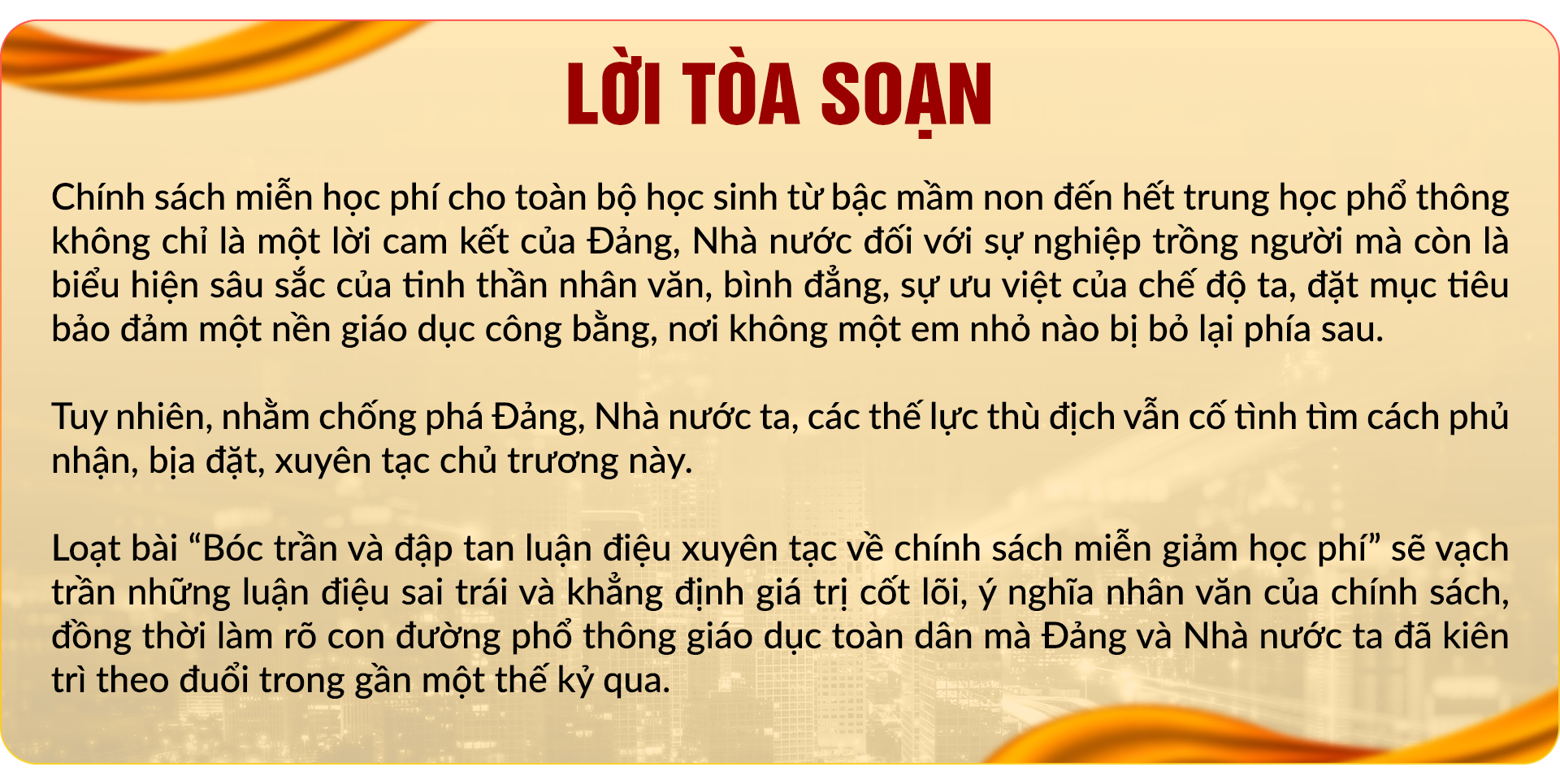

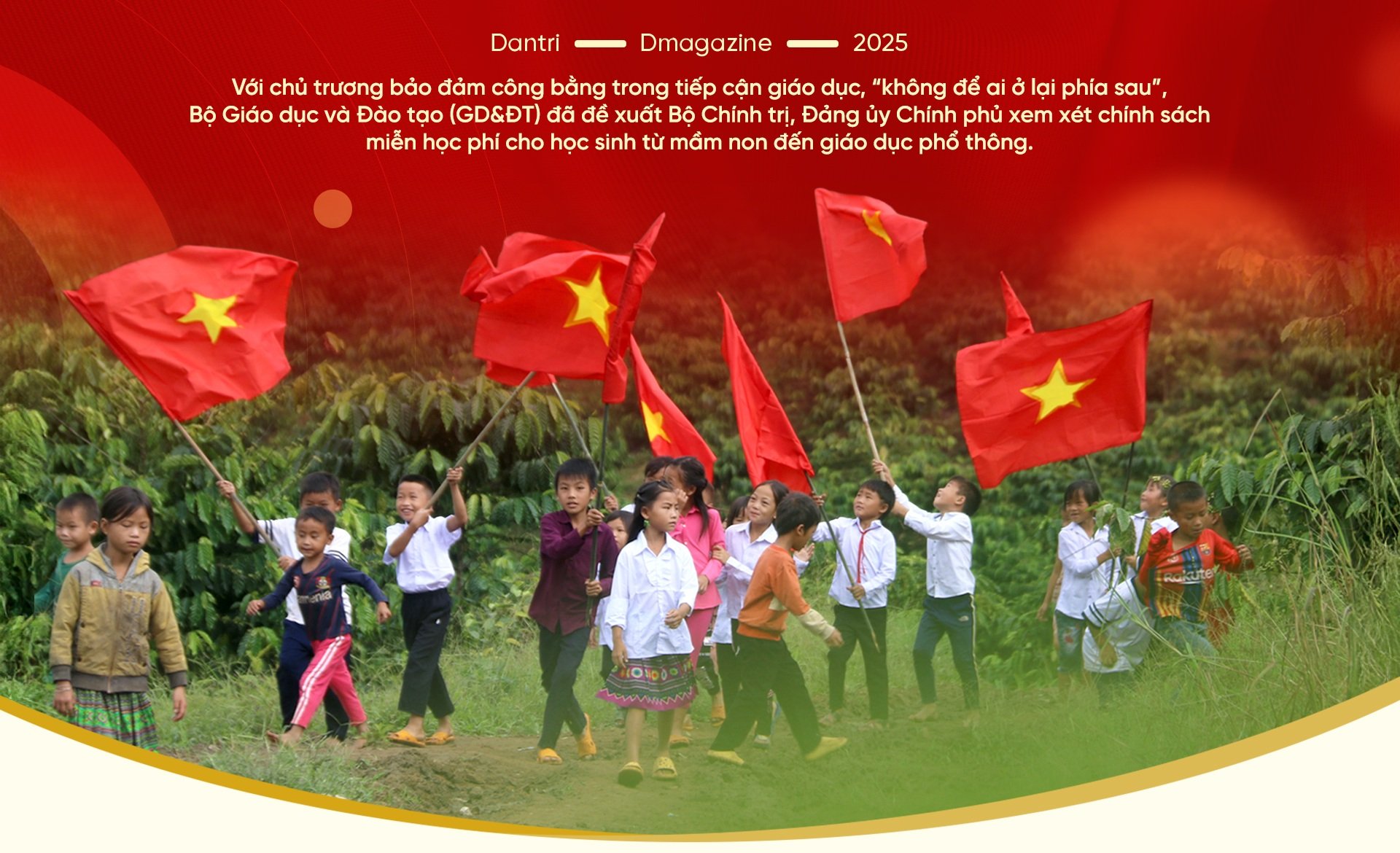

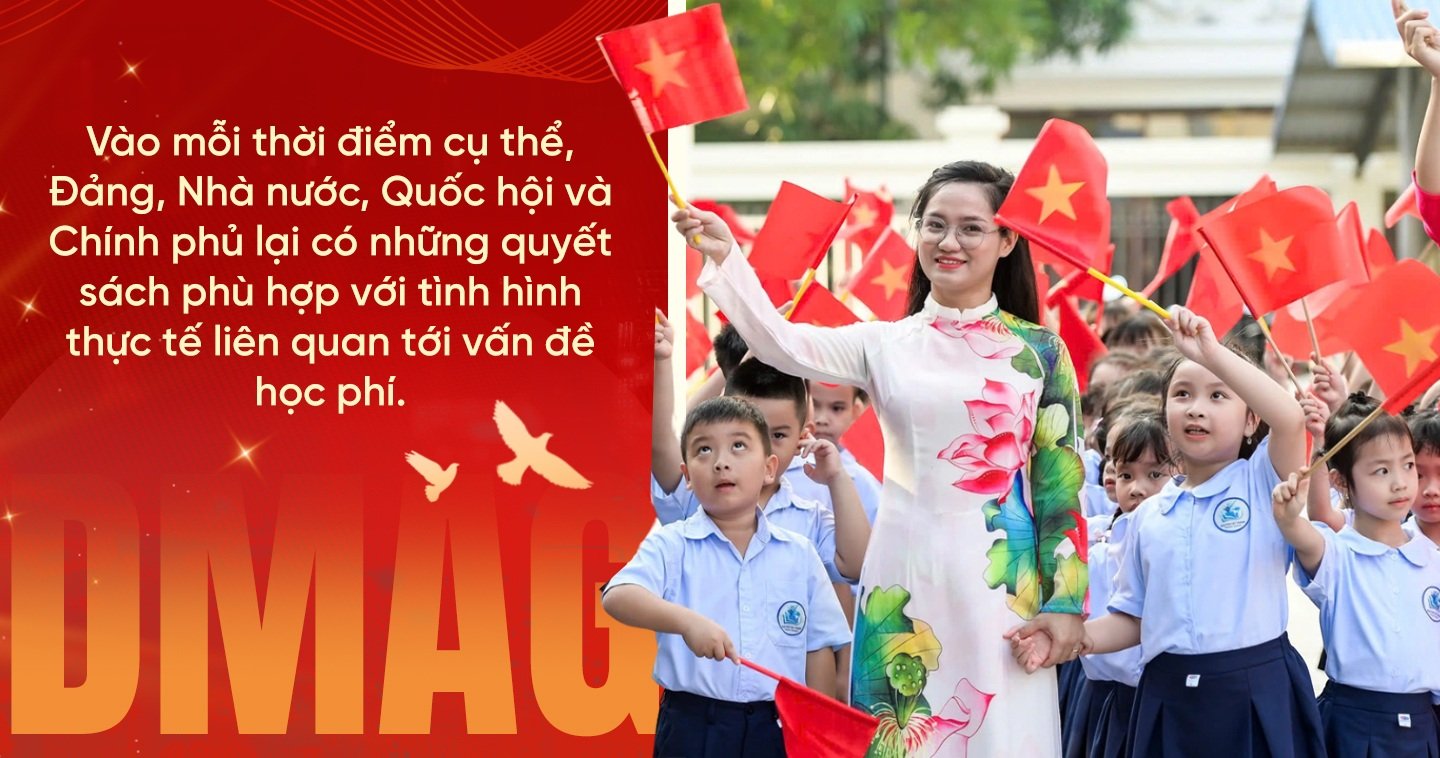

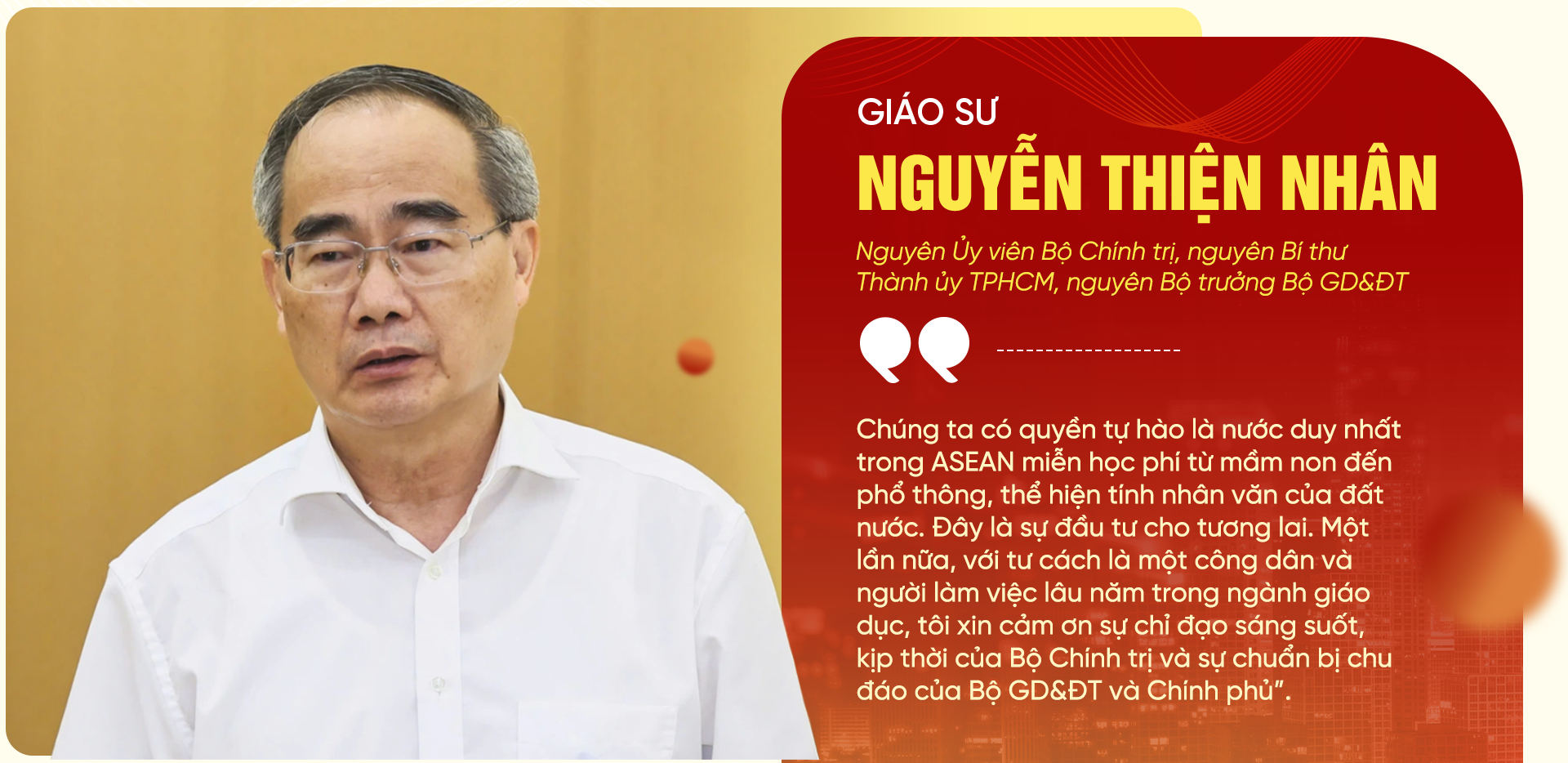
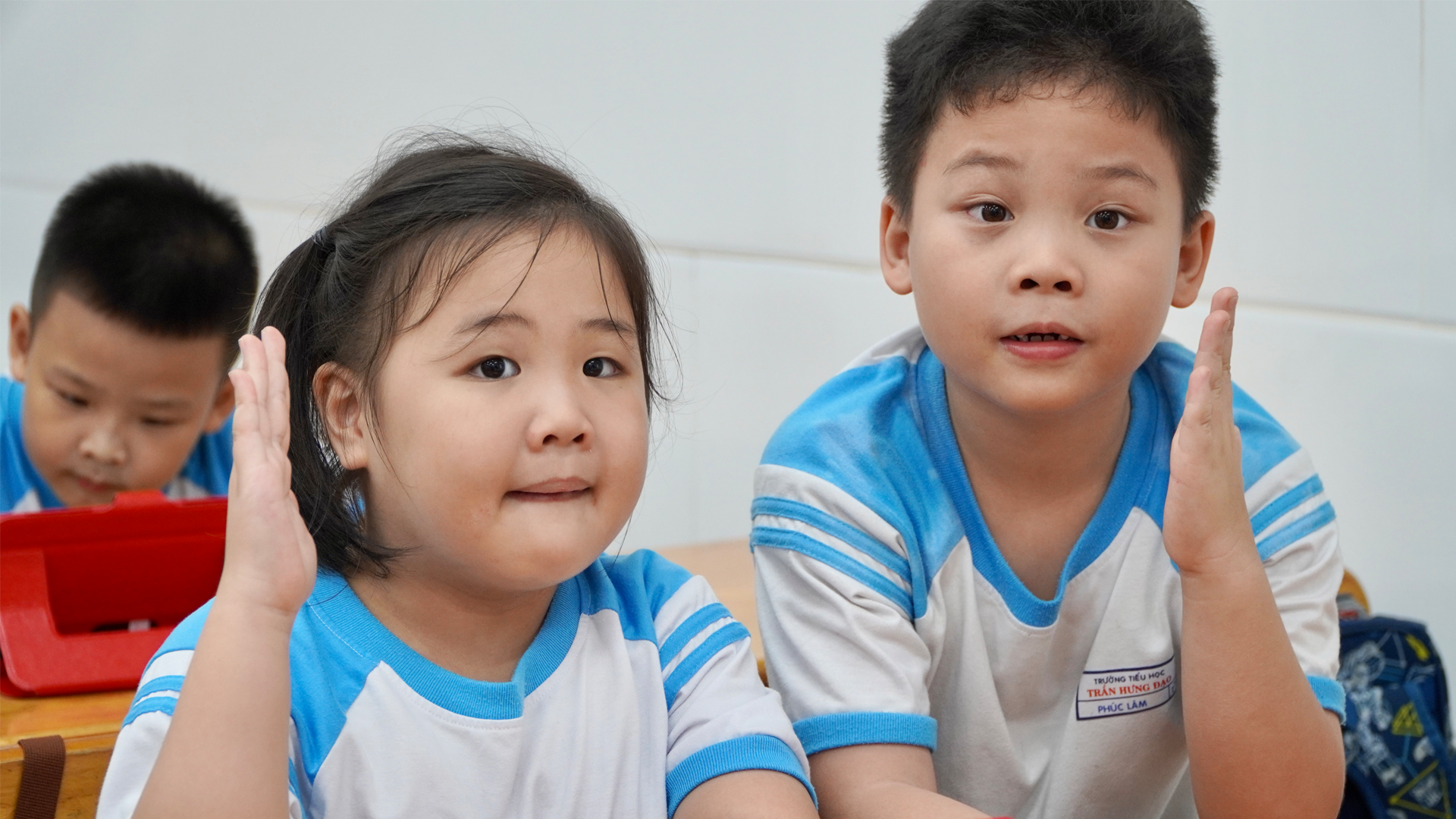
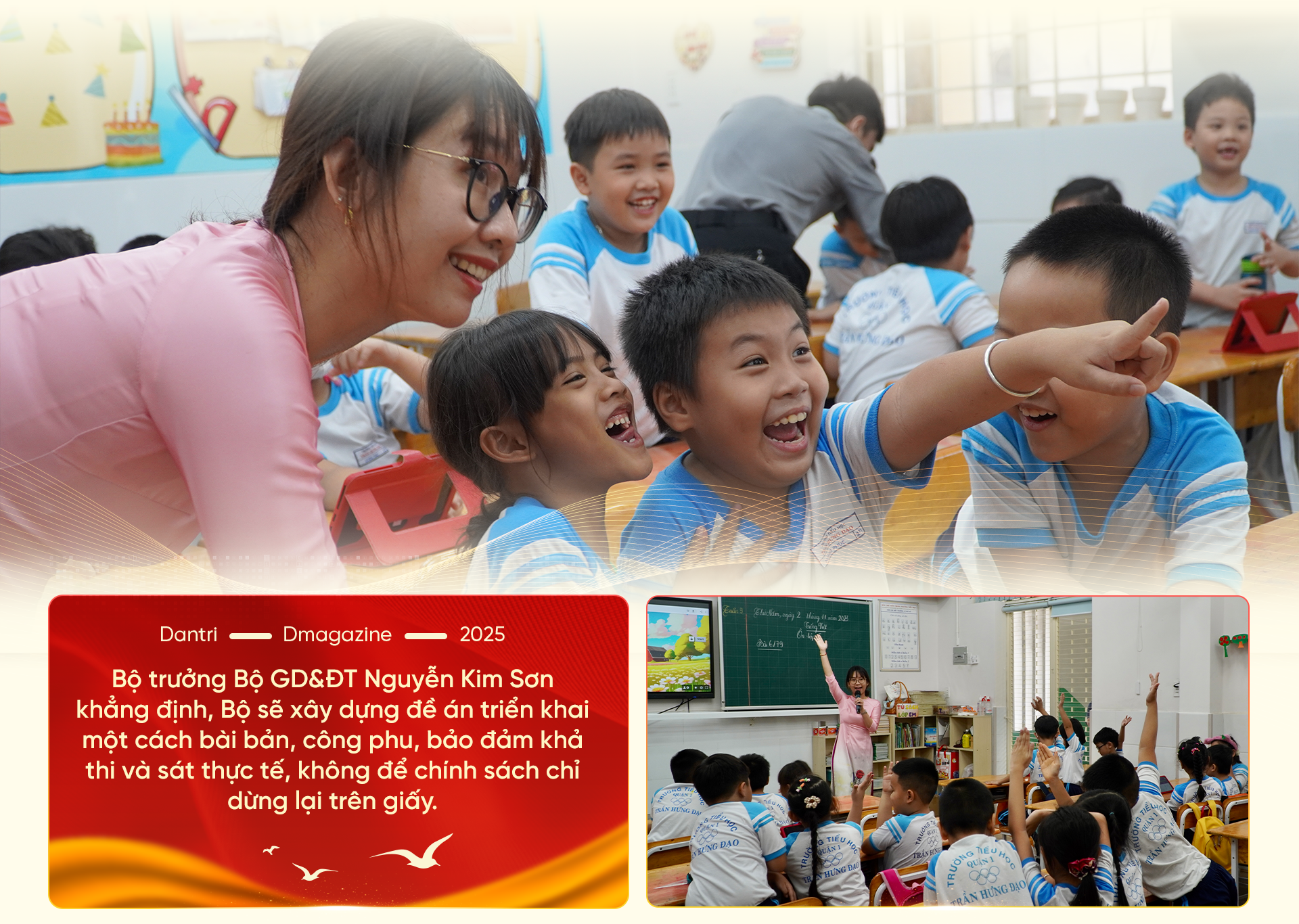

![[Photo] The Standing Committee of the Organizing Subcommittee serving the 14th National Party Congress meets on information and propaganda work for the Congress.](https://vphoto.vietnam.vn/thumb/1200x675/vietnam/resource/IMAGE/2025/11/19/1763531906775_tieu-ban-phuc-vu-dh-19-11-9302-614-jpg.webp)


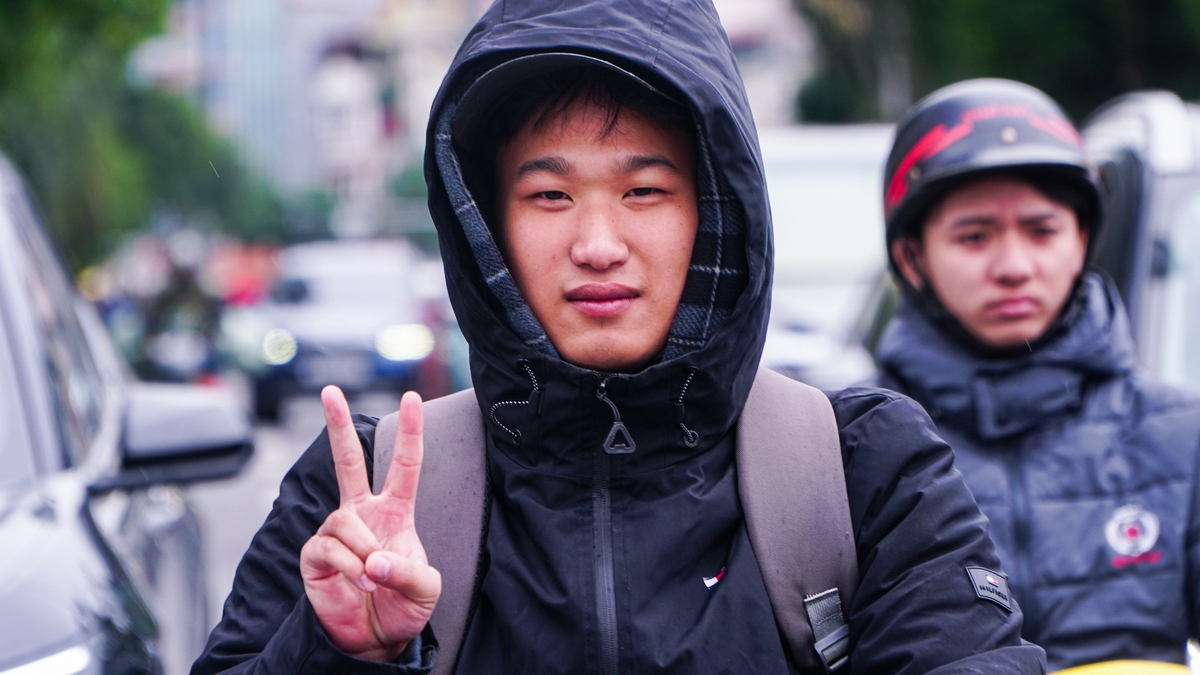
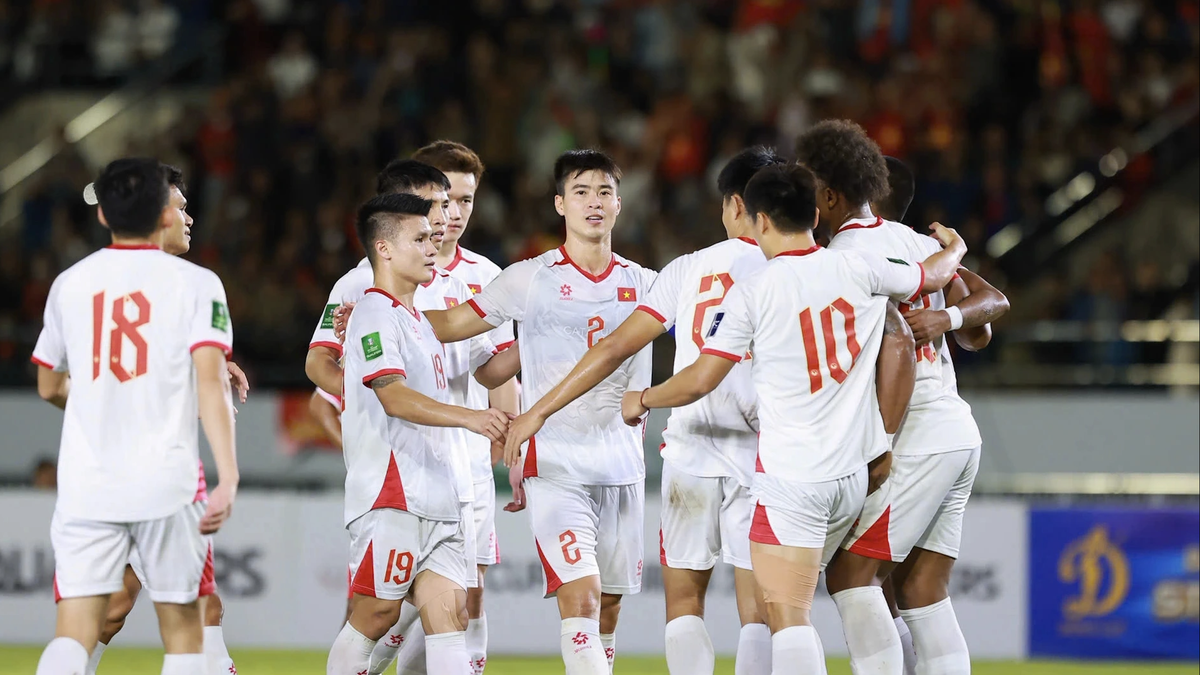
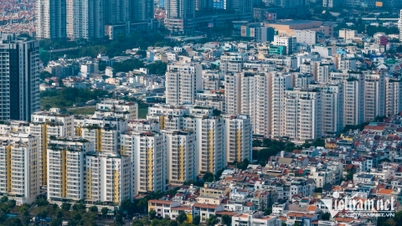

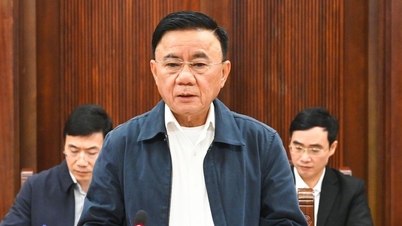

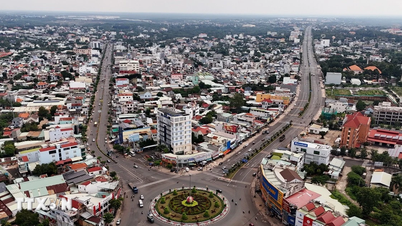

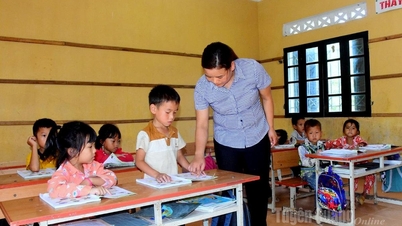



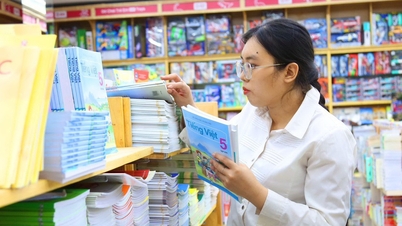


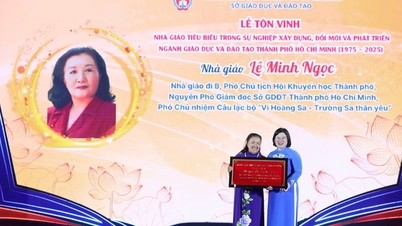

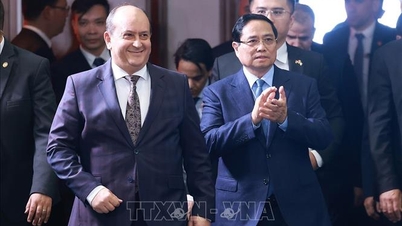

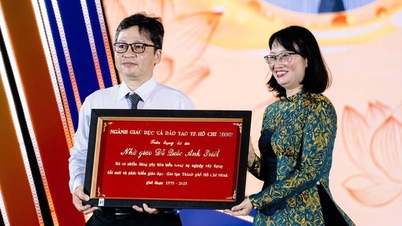
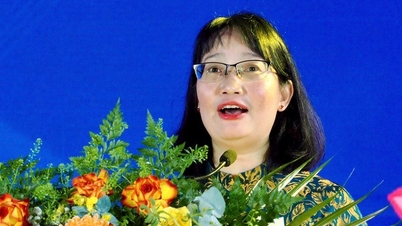
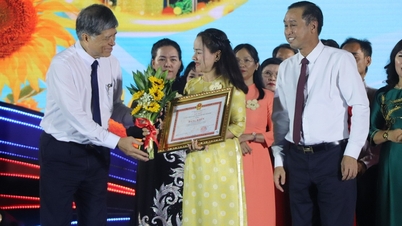





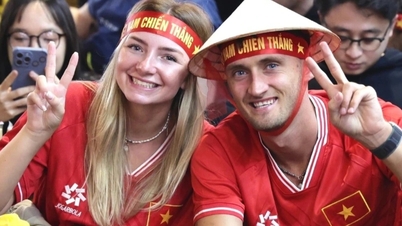

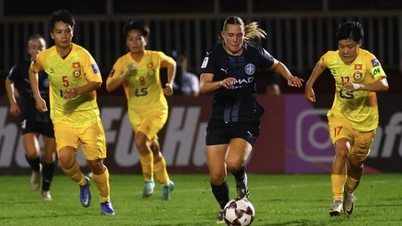
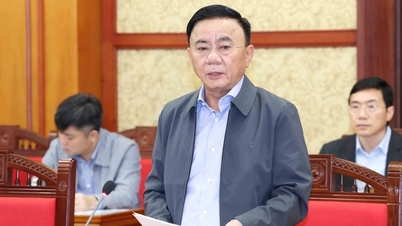
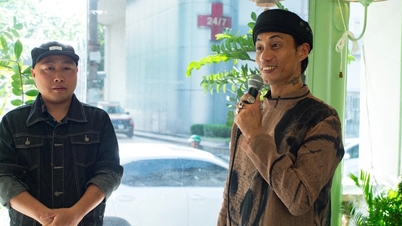

![[Photo] General Secretary To Lam receives Slovakian Deputy Prime Minister and Minister of Defense Robert Kalinak](https://vphoto.vietnam.vn/thumb/1200x675/vietnam/resource/IMAGE/2025/11/18/1763467091441_a1-bnd-8261-6981-jpg.webp)
![[Photo] Prime Minister Pham Minh Chinh and his wife meet the Vietnamese community in Algeria](https://vphoto.vietnam.vn/thumb/1200x675/vietnam/resource/IMAGE/2025/11/19/1763510299099_1763510015166-jpg.webp)









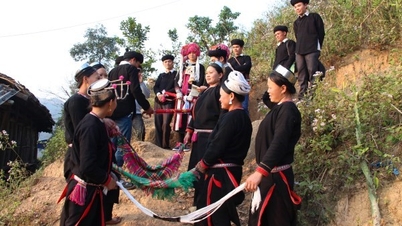

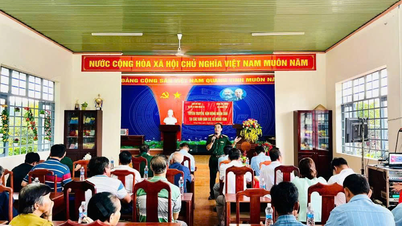



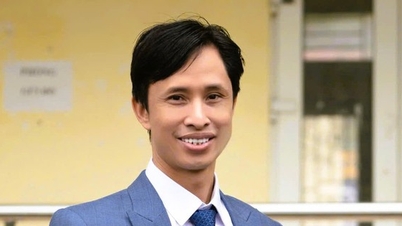
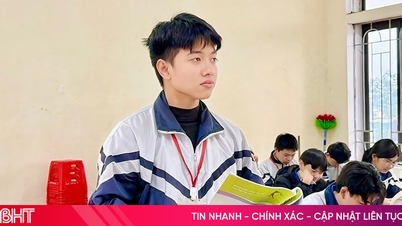


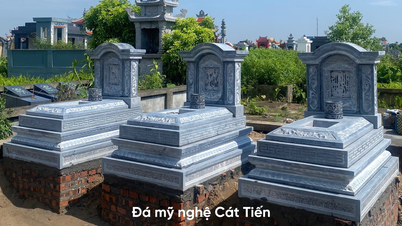



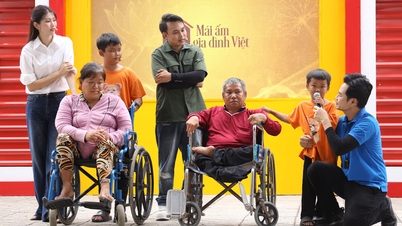
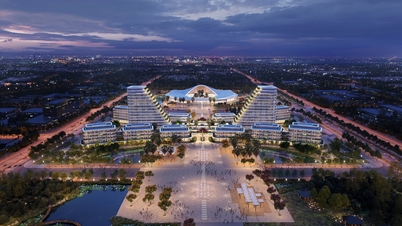











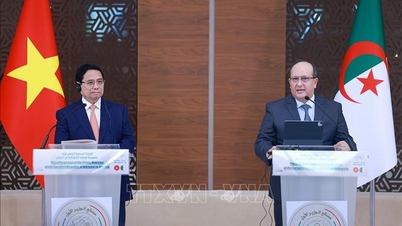





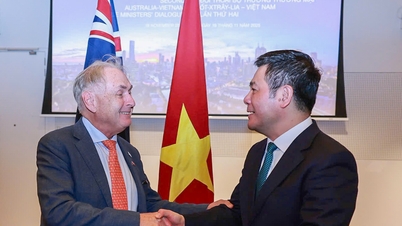





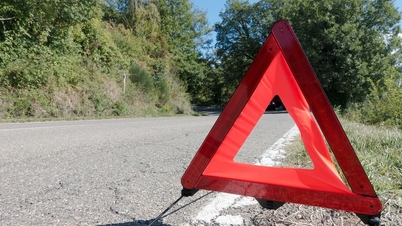

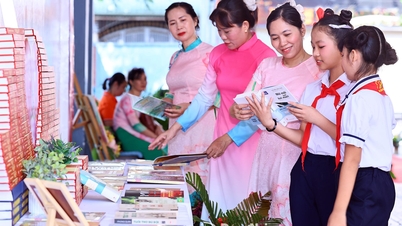


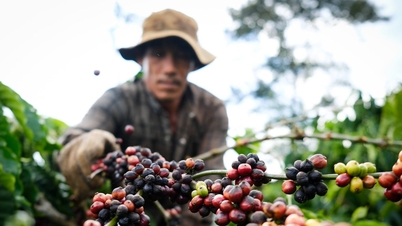















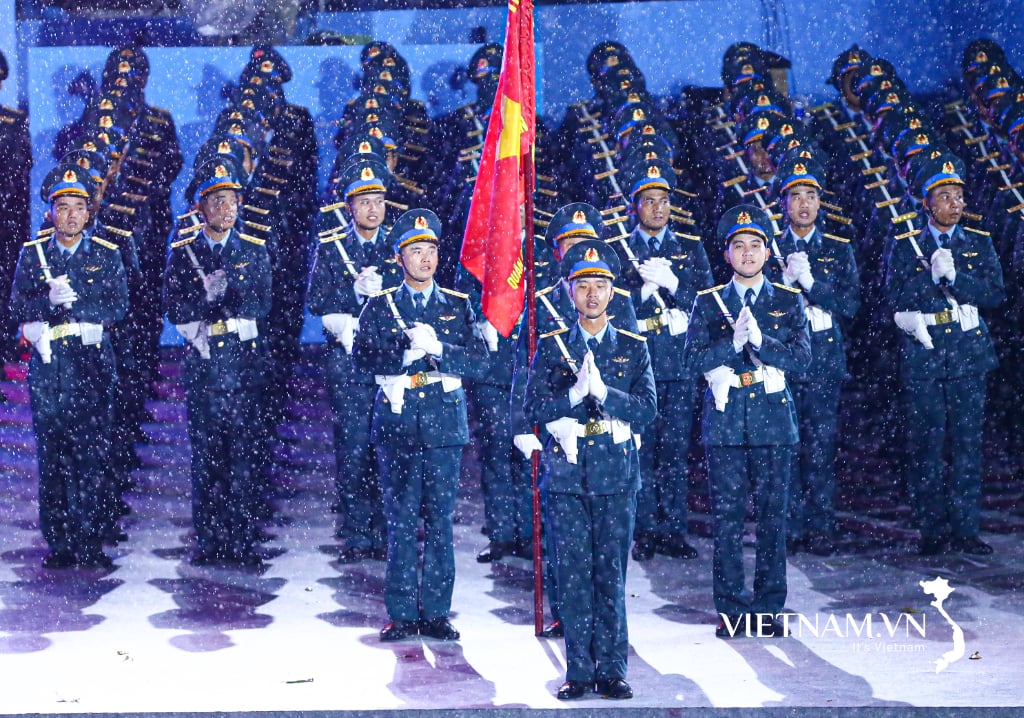
Comment (0)